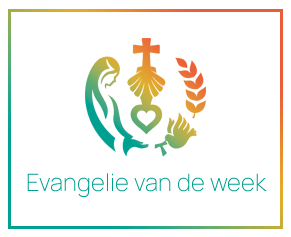Privacy Statement ENGLISH
Privacy Statement Parochies R.K. Zuidoost Twente (version July 1, 2024)
This privacy statement outlines which personal data the parish processes and why this is done. It also specifies your rights and where to address questions.
1. Name and contact details of the parishes
- Parochie Maria Vlucht
- Name: Parochie Maria Vlucht
- Mailing Address: Gronausestraat 4, 7584 Losser
- Phone Number: 053-5361675
- Email Parish Office: secretariaat@mariavlucht.nl
- Parochie St. Franciscus van Assisië
- Name: Parochie St. Franciscus van Assisië
- Mailing Address: Veldmaterstraat 61, 7481 AB Haaksbergen
- Phone Number: 053-5743929
- Email Parish Office: secretariaat@franciscusparochie.nl
- Parochie St. Jacobus de Meerdere
- Name: Parochie St. Jacobus de Meerdere
- Mailing Address: Nieuwe Schoolweg 2, 7514 CG Enschede
- Phone Number: 053 - 4785306
- Email Parish Office: secretariaat@katholiekenschede.nl
2. Personal data processed by the parish
- The parish's membership administration includes various personal data about parishioners and their household members (partners, children), such as names and addresses. In this document, parishioners are referred to as "data subjects".
- The financial system contains specific financial data about church contributions, including your bank account number if you pay church contributions.
- The parish newsletter contains names and contact details of pastors and various volunteers. It also includes photos of parish activities where identifiable individuals may appear.
- The website includes names and contact details of pastors and volunteers. It also features photos of parish activities where identifiable individuals may appear.
- Church registers contain data recorded on sacraments (baptism, confirmation, marriage, ordination) performed in one of the parish churches.
- Details of the personal data recorded can be found above and in Article 5 of the General Regulation for the Protection of Personal Data of Parishes 2018. This regulation can be found at www.rkkerk.nl/avg.
3. Purpose of processing personal data
- The parish records personal data to register in church registers which sacraments someone has received. This includes in particular:
- the registration associated with receiving the sacraments of Baptism, Confirmation, Holy Communion, Marriage, and Ordination.
- The registrations required under Canon Law.
- A parish is a community of parishioners, family members of parishioners, and people involved with the parish. The parish must maintain records to ensure the organization of the parish community, including:
- registering your contact details to send information and invitations about parish activities via communication channels;
- maintaining volunteer tasks and a record of volunteers;
- maintaining financial records related to church contributions, donations, and fundraising activities, as well as financial records concerning grave rights and stipends.
- A parish is part of the Roman Catholic Church. We are always connected with other Roman Catholic church institutions in the Netherlands. As a parish, we contribute to the maintenance and accuracy of the church's membership records and archives.
- A parish has a parish archive. The parish may also retain personal data in the archive as a source for historical, statistical, or scientific research. The parish only does this if it has an interest in the purpose of the archive.
4. Authority to process personal data
- The parish may process special personal data, such as religious beliefs, based on the law (Article 9(2)(d) GDPR).
- Other personal data may be processed by the parish based on its legitimate interests in:
- a) registering its parishioners, their family members, and people who are not members of the parish but maintain contact with the parish;
- b) maintaining volunteer administration, financial administration, conducting fundraising activities, and maintaining church registers;
- Performance of a contract to which the data subject is party;
- Compliance with a legal obligation of the civil (e.g., tax authorities, social services, police or judiciary) or ecclesiastical authority;
- Consent given by the data subject (e.g., by volunteering to join a working group or subscribing to the parish newsletter or attending parish meetings).
5. Streaming and online broadcast of church services
- Not all individuals wishing to attend a church service can be physically present in the church. Therefore, video and audio recordings of church services are made and broadcast online to enable these individuals to follow and participate in the service.
- The parish respects the privacy of church attendees. For this reason, cameras are focused on the sanctuary area. However, the parish cannot completely exclude the possibility that church attendees may appear in the recordings or audio.
- The newsletter indicates whether video and/or audio recordings will be made during the service.
- If you wish to avoid appearing in the recordings, you can always ask a volunteer or parish staff where you can sit. Spaces are reserved for this purpose.
- The broadcasts are available online for a limited time. For more information on the rights of church attendees regarding the processing of personal data, please refer to the parish's privacy statement.
- The parish uses online streaming as part of its church activities. As described in section 1, there is a need to make recordings while respecting the privacy of church attendees. The parish has obtained consent from those clearly identifiable in the recordings.
6. Retention period
- The parish retains personal data as long as an individual is registered as a member of the parish. If you are no longer a member of the parish because you have moved to another parish, we will delete your personal data from the parish membership records within one year.
- The parish cannot delete personal data from church books (baptismal register, etc.) because it is important to keep records of who has received church sacraments. The parishes follow the rules of Canon Law.
- Personal data stored in other files, such as the volunteer database, newsletter and/or parish magazine subscription database, or cemetery contact registration, will not be retained longer than necessary for the purpose of the file.
- Sometimes we cannot delete personal data because doing so would require exceptionally high effort on the part of the parish. Examples include personal data in printed editions of the parish magazine or information bulletin, or under certain circumstances, the parish archive.
7. Disclosure of personal data to third parties
- Personal data is disclosed to - and largely originates from - church institutions that are part of the Roman Catholic Church in the Netherlands. Examples include other parishes, the diocese, IPAL (the interdiocesan platform for financial and membership administration).
- If you have an agreement with the parish, such as an employment contract or a donation agreement, certain data must be provided to the Tax Authorities or another government agency based on a legal obligation. A (model) donation agreement may request your Citizen Service Number (BSN).
- The parish may engage a payroll administration office. For some services, the parish may also engage an external party, such as managing cemetery administration. In all these cases, the parish enters into agreements with these third parties on the security of your personal data in a data processing agreement.
8. Security of stored personal data
- Secure access to the membership administration system is limited to membership administrators, the parish office, and members of the parish council. Others do not have access.
- Secure access to the financial system is limited to financial administrators and members of the parish council. Others do not have access.
- Volunteers may receive files containing personal data as necessary for their duties (e.g., distributing the parish magazine or conducting the Church Tax Campaign). They destroy these files once they are no longer needed.
9. Right of access and correction
- Every parishioner has the right to access the personal data stored about them. To exercise this right, you can submit a request, accompanied by identification, to the parish office. The contact details are provided at the top of this privacy statement.
- If you find an error, you can inform the parish office.
- For more information about your rights, please refer to the General Regulation for the Protection of Personal Data of Parishes. You can find this document at www.rkkerk.nl/avg.
10. Deletion of data
- You can request the deletion of contact details, financial, or other general personal data by contacting the parish office. The contact details of the parish office are provided at the top of this privacy statement. The membership administrators or members of the parish council will handle your request.
- If you wish to unsubscribe as a parishioner, we ask you to follow the applicable registration and deregistration procedure of the Roman Catholic Church. Information about this procedure and the form can be found on the website www.rkkerk.nl. Please send this form to the parish office. The contact details of the parish office are provided at the top of this privacy statement. The membership administrators of the parish or members of the parish council will handle your request.
- For more information about your rights, please refer to the General Regulation for the Protection of Personal Data of Parishes. You can find this document at www.rkkerk.nl/avg. Additional information about the church's procedure for deregistration and the deregistration form can be found on www.rkkerk.nl.
11. Right to lodge a complaint
- Requests or complaints regarding the processing of personal data can be sent by the data subject to the parish council. The contact details are provided at the top of this privacy statement.
- The data subject will receive written notification of the outcome of the request or complaint.
- If the parish council does not or only partially honors the request or complaint, the data subject may file a complaint regarding the dispute with the Dutch Data Protection Authority:
Dutch Data Protection Authority
Attn: Complaints Coordinator
PO Box 93374
2509 AJ THE HAGUE
12. Data Protection Officer
- A Data Protection Officer (DPO) has been appointed for questions or complaints about the processing of personal data in the Roman Catholic Church membership administration.
- If you have a complaint or question about how your personal data is processed in the Roman Catholic Church membership administration, please contact the DPO. You can submit your questions digitally via the contact form at www.rkkerk.nl/avg
Onze parochies
Lach als de zon, stralend met positiviteit en warmte.










